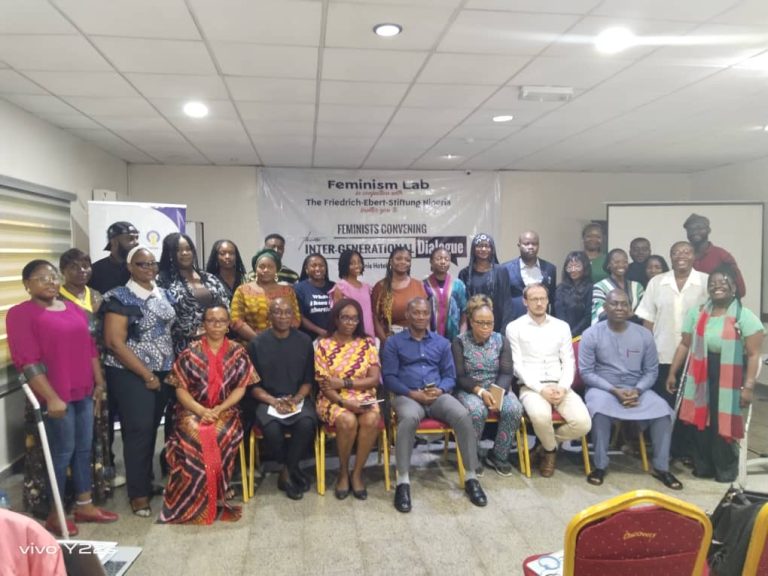A Non-Governmental Advocacy Group, Feminism Lab, has called for social justice and political advancement of women to ensure gender development in Nigeria’s politics.
The group, in conjunction with Friedrich-Ebert-Stitung Nigeria, made the call during an inter-generational dialogue to promote political gender progress and social justice on Friday in Abuja.
The Resident Representative, Friedrich-Ebert-Stitung Nigeria, Leonard Oestergaard encouraged women to demand favourable gender principles that would promote social justice and create access to gender justice.
Oestergaard urged leaders in the feminist struggle to articulate a compelling vision of inclusive governance and gender parity.
According to him, this will give women opportunities to occupy key policy-making positions, as well as access to essential services.
“Gender justice is both a question of representation in government and political spheres. It is not only about number or percentage of women in parliament, it is more than that.
“Over the years we realised that it is not necessarily skills that are lacking in the struggle for gender development but more of the political economy that is not correct.
“For us to make impact on this journey is to create alliances, not only to work with similar people but to form an alliance or create an alliance that fights for gender and social justice,” he said.
Austin Aigbe of West Africa Democracy Solidarity Network, during the panel session, affirmed the need for equal representation and opportunity for gender equality.
Aigbe called for reforms that would address the issue of feminism appropriately.
According to him, each time women are empowered without creating a place for the man, it creates disaster for the future.
“This will create a situation where men will have no knowledge about the conversation on feminism,” he said.
Aigbe said there was need for affirmative action, adding that “if there is no law in place, it will be extremely difficult to address the issue of gender equality in politics.
“But by passing a single gender and equal opportunity law, this will increase participation of women in governance and that is the way to go,” he said.
Earlier, Vina Adams of Feminism Lab, said the dialogue brought together diverse and dynamic coalition of feminists and community leaders to discuss, understand and promote progressive feminist discourse.
Adam said the dialogue was a deliberate effort to pass down feminist skills and knowledge to the younger generation in confronting and overcoming discrimination, building resilience, and engaging in protests and activism for emancipation.
“One of the most significant aspects of this initiative is its emphasis on bridging the generational gap by bringing together feminists of all ages and backgrounds, to foster a rich environment of mutual learning and support.
“We decided to host this intergenerational dialogue to interrogate the misconception and misunderstanding of feminism, and to connect the theory and practice of feminism especially in Nigeria.
“The dialogue will lay emphasis on the importance of feminism, the history of different feminist movements, and some of the most famous types of feminism.
“Also, it will help us to understand how continued engagement with feminist theory and practice will mitigate the challenges of misconception and misunderstanding of feminism in Nigeria,” he said.
By Justina Auta


